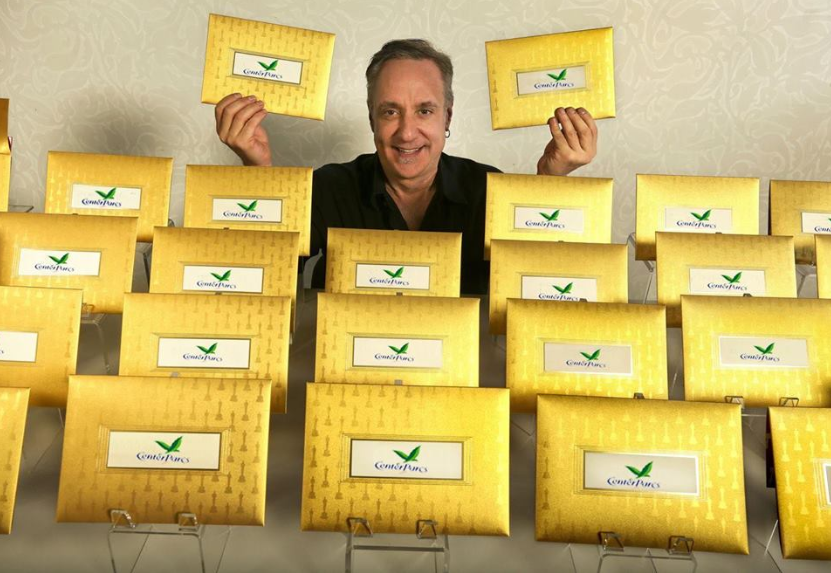Center Parcs Facebook scam: How to spot fake travel competitions online
Ten of thousands were tricked by a fraudulent holiday competition advertised on social media

Consumers have been warned after more than 29,000 Facebook users were fooled by a fake competition purporting to be giving away free holidays to Center Parcs Longleat.
The post claimed that 30 lucky winners would be selected from those who shared, liked or commented on it, and featured a photo of a man, claiming to be “Center Parcs CEO Mark Frendon”, surrounded by golden envelopes – allegedly containing the free holidays.
However, despite appearing legitimate to thousands of people on social media, the post was revealed to be a fake. Someone even claimed the photo was of a man involved with putting the names in the Oscars envelopes, doctored specifically for the scam.
Wiltshire Trading Standards issued a statement on its website on Friday, mirrored by local police: “This is a page set up by scammers for ‘like-farming’ and no one EVER wins a prize.”
It added that once enough likes had been obtained, “they will edit the post and may add something malicious such as malware or will strip back the original content and fill your page with spam.”
The competition was not mentioned on the real Center Parcs page, which has 370,000 likes and posts going back for several years.
The ersatz page, however, was only created on 21 November and has 1,500 likes.
Fake pages like this are usually set up by “like-farmers”, who use likes and interactions to harvest users’ personal data.
How to identify a scam offer on social media
Look before you like
Trading Standards has advised social media users to check before liking a page. If it’s a legitimate big business, such as Center Parcs, it should have a blue tick, which means it’s a verified account.
What’s its history?
Don’t just look at the competition post – look at the main page or account it originates from. Does it check out? Look at when the page was created, what information and content is on there and how far back the posts go. If it looks suspiciously recent, chances are it’s not legit.
Google it
Search for the company’s Facebook page, in this case Center Parcs, using a search engine. The top listing should be the correct one – check it’s the same as the page the original post was issued from and, if not, if there’s any mention of the competition on the bona fide page. If not, it’s likely fraudulent.
Join our commenting forum
Join thought-provoking conversations, follow other Independent readers and see their replies
Comments